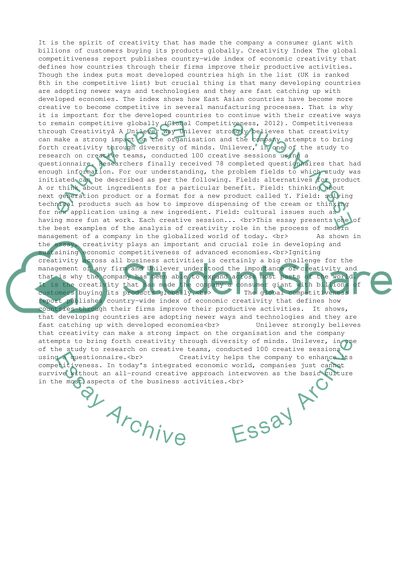Cite this document
(“Role of Creativity in Enhancing the Competitiveness of Unilever Essay”, n.d.)
Retrieved from https://studentshare.org/business/1465357-role-of-creativity-in-enhancing-the-competitiveness-of-unilever-company
Retrieved from https://studentshare.org/business/1465357-role-of-creativity-in-enhancing-the-competitiveness-of-unilever-company
(Role of Creativity in Enhancing the Competitiveness of Unilever Essay)
https://studentshare.org/business/1465357-role-of-creativity-in-enhancing-the-competitiveness-of-unilever-company.
https://studentshare.org/business/1465357-role-of-creativity-in-enhancing-the-competitiveness-of-unilever-company.
“Role of Creativity in Enhancing the Competitiveness of Unilever Essay”, n.d. https://studentshare.org/business/1465357-role-of-creativity-in-enhancing-the-competitiveness-of-unilever-company.


